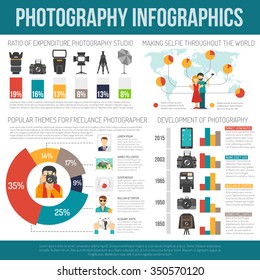A Guide To Picking The Perfect Cam For Real Estate Photography
A Guide To Picking The Perfect Cam For Real Estate Photography
Blog Article
Composed By-Bernard Fallesen
When venturing right into real estate photography, selecting the ideal camera is critical for catching residential or commercial properties in their best light. The option of camera can significantly affect the top quality of your images, influencing exactly how prospective buyers perceive a listing. From sensor size to lens compatibility and low light performance, each element plays a crucial function in attaining magnificent visuals that make an enduring perception. So, as you embark on this visual journey, guaranteeing your cam ticks all the right boxes is key to establishing your job apart in a competitive market.
Camera Sensing Unit Dimension
When picking a camera for real estate photography, understanding the significance of video camera sensing unit dimension is essential. The sensor dimension of a camera straight influences the photo high quality and performance in various illumination problems. Larger sensor sizes, such as full-frame sensors, have a tendency to capture a lot more light and detail, leading to sharper images with far better vibrant array. For real estate digital photography, where catching the detailed information of a home is crucial, choosing a video camera with a larger sensor size can make a considerable distinction in the final outcome of your images.
Cams with smaller sized sensor sizes, like those discovered in portable cams or smartphones, may struggle to produce high-grade images, especially in low-light circumstances. The smaller sensors can bring about even more noise and much less detail in the photos, which can be a downside when showcasing buildings to potential purchasers.
Investing in a cam with a bigger sensor dimension, even if it implies a somewhat higher expense, can elevate the general top quality of your realty photography and establish your listings apart from the competitors.
Lens Compatibility
Understanding the lens compatibility of a camera is essential when considering tools for real estate digital photography. Different video cameras have details lens mounts that dictate which lenses are compatible.
Genuine estate digital photography, wide-angle lenses are generally used to record the full scope of areas and spaces. When selecting a camera, ensure that it supports wide-angle lenses with focal lengths commonly varying from 10mm to 24mm for APS-C sensing unit video cameras and 16mm to 35mm for full-frame sensing units.
It is necessary to examine if the video camera you're interested in has a range of lens options offered on the market. Having access to a broad selection of lenses allows you to adapt to different shooting scenarios and attain numerous imaginative impacts.
In https://www.lcsun-news.com/story/news/local/community/2020/01/14/five-things-do-weekend-las-cruces/4460067002/ , take into consideration the quality of the lenses suitable with the video camera, as buying high-grade lenses can dramatically impact the sharpness and overall look of your realty photos. Remember, lens compatibility plays a vital function in taking full advantage of the potential of your electronic camera for real estate digital photography.
Low Light Efficiency
For optimal real estate photography, the low light performance of a camera is crucial. When selecting a camera for real estate photography, think about one with excellent reduced light capacities. Feature frequently need to be photographed in poorly lit rooms or during twilight hours to capture the ambiance properly. A video camera with exceptional reduced light efficiency will make sure that your pictures maintain quality and sharpness even in challenging illumination conditions.
Video cameras with larger sensors have a tendency to perform much better in low light scenarios as they can capture more light, resulting in much less noise in the images. Search for video cameras with a wide ISO range, permitting you to change the level of sensitivity to light as needed.
In addition, cams with good noise reduction modern technology can aid generate cleaner images in reduced light.
Having a video camera with solid low light efficiency will give you the adaptability to fire in various illumination problems without endangering the top quality of your property images. Make sure to examine the electronic camera's low light capabilities prior to making your decision to guarantee it satisfies your photography needs.
Conclusion
So, when picking an electronic camera for real estate photography, keep in mind to focus on sensor dimension, lens compatibility, and low light efficiency. A larger sensor size, wide-angle lens compatibility, and great reduced light efficiency will make sure that you record high-grade pictures of residential or commercial properties with excellent detail and clearness. Ensure to do your research study and select a cam that meets these criteria for the best lead to your real estate photography undertakings.
